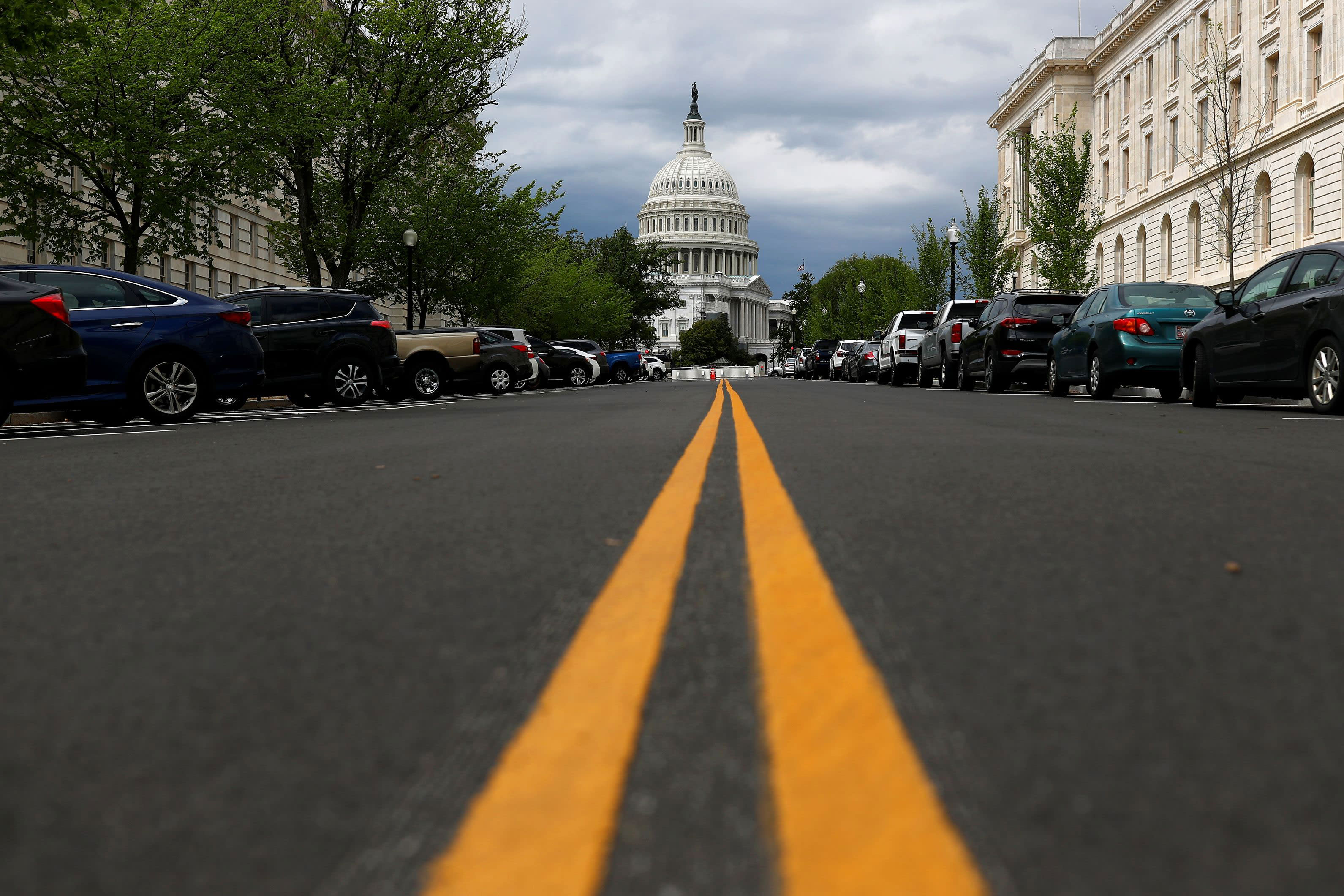Coronavirus relief talks sputter as $600 weekly unemployment benefit expires and Washington plays blame game

Negotiators on the next coronavirus relief bill appeared as far as ever from an agreement Friday and rushed to lay blame as a key financial lifeline expires.
Underscoring the gulf between Democrats and Repbulicans as they try to boost an economy and health-care system buckling under the weight of the pandemic, House Speaker Nancy Pelosi, D-Calif., and White House chief of staff Mark Meadows offered derision during dueling news conferences Friday morning. The pair met with Senate Minority Leader Chuck Schumer, D-N.Y., and Treasury Secretary Steven Mnuchin on Thursday night but appeared to make little progress toward cracking the impasse.
Schumer said the lack of a Republican consensus on pandemic aid has hindered progress toward a deal. Multiple GOP senators have said a large share of the caucus does not support the legislation Republicans released this week.
The current $600 per week enhanced federal unemployment benefit lapses at the end of the day, though states stopped paying it out last week. After last-ditch efforts to pass an extension failed Thursday, the Senate left for the weekend, guaranteeing the money buoying roughly 30 million people during an economic crisis will at least temporarily dry up.
While the House was scheduled to leave for all of August, Majority Leader Steny Hoyer, D-Md., told members their recess would not start until the chamber passes a coronavirus relief bill. He said he would give representatives 24 hours' notice before a vote.
On Friday, Meadows told reporters the Trump administration officials made "no less than four different offers" to Democrats to temporarily extend the unemployment insurance. Pelosi acknowledged she rejected at least one proposal, a one-week extension of the $600 benefit, saying Congress usually uses such a stopgap plan if it is near an agreement.
"No, let's sit down and get this done. Let's recognize people need $600," the speaker said. Pelosi later added, "We don't have shared values. That's just the way it is."
Meadows accused Democrats of holding out to get a better deal "at the expense of those that are hurting."
"We're going in the wrong direction. They're going in the wrong direction because of partisan politics. It is very disappointing," he said.
Even so, both Pelosi and Meadows said they would continue talks to try to strike an agreement. They said the four negotiators will meet again Friday, and potentially hold discussions on Saturday, as well.
Congress is struggling to find common ground on coronavirus relief as statistics show an economy still reeling from an outbreak spreading throughout the country. Initial jobless claims climbed to 1.43 million last week, rising for the second straight week. U.S. GDP also fell by a record 32.9% in the second quarter during the peak of pandemic-related shutdowns — an expected but still devastating plunge.
The U.S. has now reported more than 4.4 million Covid-19 cases, and at least 152,000 people have died from the disease, according to data from Johns Hopkins University.
Democrats have said the GOP waffled on the need for coronavirus aid throughout June and July, before turning to address a rescue package only a couple weeks before the unemployment benefit expires. After the meeting Thursday, Schumer said, "We just don't think they understand the gravity of the problem."
The discussions followed a couple of doomed attempts by the Senate to pass legislation before it adjourned.
On Thursday, Sen. Ron Johnson, R-Wisc., tried to unanimously pass an extension of the weekly enhanced federal unemployment insurance that would slash the benefit from $600 to $200 per week. Schumer rejected it.
Schumer then attempted to unanimously approve the $3 trillion rescue package House Democrats passed in May. That legislation also failed, leaving Congress no closer to breaking an impasse over how best to boost a health-care system and economy ravaged by the pandemic.
Congressional leaders tossed blame for the inevitable expiration of the strengthened unemployment insurance.
Senate Majority Leader Mitch McConnell accused Democrats of refusing to "engage" with the GOP after it released its coronavirus relief proposal on Monday. Republicans unveiled the plan more than two months after the House passed its legislation, which Democrats considered their opening offer in the next round of aid discussions.
"Either our Democratic colleagues come to the table, or the American people won't get the help they need," McConnell, a Kentucky Republican, said on the Senate floor Thursday.
The sides will have to resolve differences on a range of issues, most notably the unemployment insurance extension. Democrats want to maintain the $600 per week jobless benefit, on top of what recipients get from states, into next year. Republicans want to cut it to $200 per week through September, then set it at 70% wage replacement.
Democrats have also criticized the lack of several other provisions in the GOP plan, including direct aid for state and local governments and funds for rent, mortgage and food assistance. They also oppose liability protections for businesses, doctors and schools, which McConnell has said will have to be in any bill he brings to the Senate floor.
As they moved closer to Friday's deadline without a comprehensive deal, both President Donald Trump and Mnuchin floated the possibility of passing a short-term deal to extend the unemployment insurance and a federal eviction moratorium.
It is unclear now how quickly the sides can resolve seemingly intractable issues and renew critical assistance for millions of people. But Pelosi expects negotiators will still find common ground.
"We anticipate that we will have a bill. But we're not there yet," she said Friday.
—CNBC's Terri Cullen and Kevin Breuninger contributed to this report.
Subscribe to CNBC on YouTube.
tinyurlis.gdv.gdv.htclck.ruulvis.netshrtco.de
